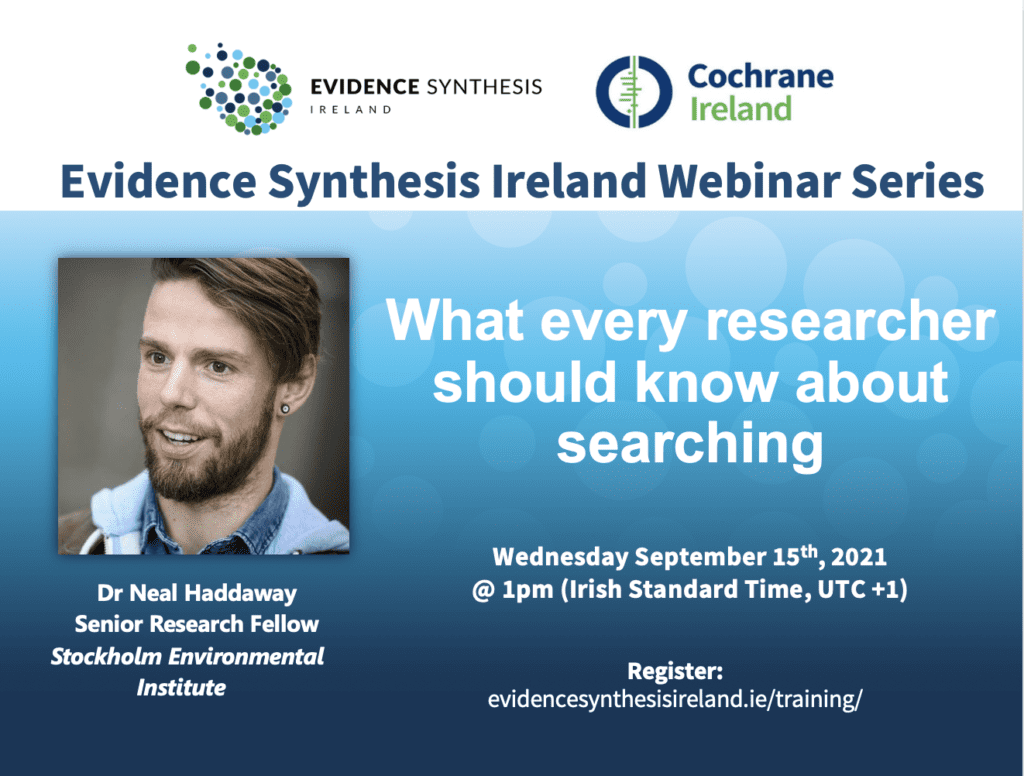The COVID-19 pandemic has demonstrated that the research community is currently grappling with an infodemic – an explosion of research literature that makes it almost impossible for individuals to stay abreast of an evidence base. At the same time, the range of tools available for research discovery is continuing to expand. However, researchers often lack the necessary searching skills to transparently and comprehensively find research. Here, Dr Haddaway introduce a framework for types of searching, and highlight why it is vital that researchers understand the different types of searching. He also discusses the importance of appraising research discovery facilities, like Google Scholar, to ensure that they function the way we expect, and to drive up the quality of search tools available to use. Only with a combination of appropriate tools and practices can we deal with steadily increasing evidence bases across disciplines.
Neal Haddaway is a Senior Research Fellow at SEI and has a Humboldt Fellowship at the Mercator Research Institute on Global Commons and Climate Change. His background is in environmental management and biological conservation. Since 2012, Neal has worked with evidence synthesis, primarily in the environmental field, but particularly with a focus on methods development and the use of technology to optimize the accessibility, efficiency, transparency, and rigour of systematic reviews and systematic maps. Neal is the co-founder of the Evidence Synthesis Hackathon, a Co-Chair of the Campbell Collaboration Climate Solutions Coordinating Group, and Leader of the Collaboration for Environmental Evidence centre in Sweden.





